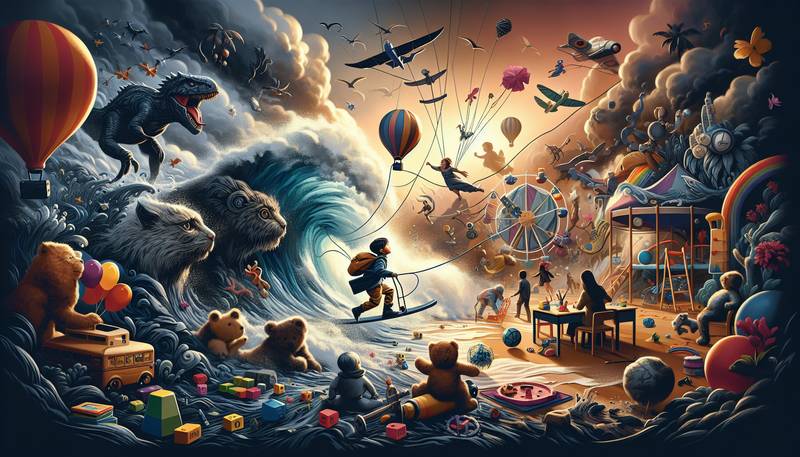The Savage Journey to the Heart of Children's Development: The All-Important Role of Play

Welcome to the Playground of LifeImagine a world where adults carried around colorful building blocks and flung themselves into ball pits on a Monday morning. It sounds like a scene from a peculiar dream—or perhaps a Friday night at a certain kind of party. Strangely enough, this whimsical imagery isn’t too far removed from the essence of childhood. Play is the secret sauce in the recipe of growth, the cherry on top of cognitive development, and let’s face it, it’s also the reason why parents can justify spending hours in toy aisles. As children dive into their imaginary worlds, armed with nothing but their creativity and a slightly questionable understanding of physics, they’re not just goofing off. They are mastering skills that will serve them well in the tangled dance of adulthood. From building castles out of blocks to pretending their stuffed animals are holding a business meeting, play is serious work.The Building Blocks of LearningThe idea that play promotes learning is hardly revolutionary. It’s like saying pizza is a popular food—obvious, yet delightful. Research shows that through play, children develop vital skills that set the stage for future success. Consider the various forms of play, which all contribute uniquely to growth: - Physical Play: Jumping around like a kangaroo on a trampoline helps develop motor skills and coordination. Just don’t let them bounce into the neighbor's hedges.
- Creative Play: Crafting with crayons evokes the spirit of a young Picasso, except with more glitter and less existential dread. This kind of play nurtures creativity and problem-solving.
- Social Play: Whether they’re teaming up to defeat an imaginary dragon or simply arguing over whose turn it is on the swing, children learn to communicate, collaborate, and occasionally negotiate a peace treaty over snacks.
Each type of play brings its own flavor to the table, like a buffet where every dish is intriguing in its own way. Just watch out for that mystery meat. Building Relationships Through PlayPlaying isn't just about honing skills; it's also about forging friendships. Watch kids on a playground; they will go from strangers to best friends faster than an adult can make a cup of coffee—though it helps if that coffee's been spiked with a little caffeine. Through shared laughter and the occasional squabble over who gets to be the superhero, children learn the nuances of social interaction. This process builds empathy and understanding, preparing them to navigate the more complex social waters of teenage years—where the stakes are higher, and the drama hits peak levels. They might even begin to understand the importance of sharing, though this lesson usually requires some trial and inevitable tribulation. The Serious Side of PlayAs much as play often resembles a chaotic circus act, it has real benefits that extend far beyond mere entertainment. Scientific studies have shown that engaging in play promotes cognitive development, enhancing memory and concentration. Moreover, play allows children to explore their identities and express their feelings. A child who feels free to build and destroy with blocks can also work through their emotions in a constructive way. In a world that sometimes feels unmanageable, play is a vital outlet, offering kids the opportunity to work through their fears, anxieties, and the struggle of who gets the last cookie. Chasing the Playful Spirit into AdulthoodYou might think that play is something to leave behind in childhood, like baby teeth or mismatched socks. But here’s a wild thought: incorporating play into adult life could lead to more creativity, better team dynamics, and, of course, a lot more fun at meetings. Picture brainstorming sessions where tossing a beach ball is part of the agenda. Companies that encourage playful environments often see a boost in productivity and morale. Who knew that a game of office charades could lead to the next big idea? Play On: The Future AwaitsAs the curtain falls on this journey through the playground of development, one thing is clear: play is not just child's play; it's foundational to growing up sane. It prepares children for life’s challenges, equips them with essential skills, and gives them the chance to laugh at their own mistakes—similar to what many adults do every time they try to assemble IKEA furniture.Encouraging a playful spirit is not just a parental duty; it’s a lifelong investment in joy, creativity, and all the messy, beautiful chaos that life can throw their way. So embrace the silliness, prioritize play, and let children dive headfirst into their imaginative realms. After all, life is too short not to play!
|
|







